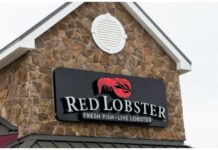
*Last year Netflix vowed to address systemic racism by shifting 2 percent of its cash holdings, or $100 million, to financial institutions that support Black communities in the U.S.
Last week, the streaming giant confirmed that the cash was allocated to six financial institutions: Hope Credit Union, the Local Initiatives Support Corporation (LISC), The Change Company, Enterprise Community Impact Note, OneUnited Bank and Calvert Impact Capital’s Community Investment Note.
The aim is to make sure more home and business loans are distributed throughout, Black communities, especially those impacted by the pandemic.
One of the banks, Hope Credit Union, intends to dive deeper into financial discrimination with “Banking On Us,” a new 3-part limited series by Netflix’s Strong Black Lead. Check out episode one below.
READ MORE: Netflix Moves $100 Million to Banks Serving Black Communities
Hope’s CEO Bill Bynum recently sat down with Essence to talk about his partnership with Netflix — below are excerpts from the conversation.
Bill, you’ve built a long, powerful career of empowering Black people to take charge of their financial futures. Did you have early conversations about money in your family?
We didn’t really have conversations about money in my household growing up. My family was a lot like the families we serve at Hope–people who pool their resources together to help each other. That’s what got us through. As a matter of fact, I remember at a very young age my grandmother would take me to the credit union that was located in the garage of my school’s vice principal. That’s where Black folks in the community would bank. We couldn’t go to the local Community Bank and be treated fairly. So, that was our reality.
You actually touched on something that I wanted to ask you about: the complicated relationship that Black people have with banks. What sort of challenges have you faced when working to earn the trust of your customers?
It’s been complicated, without a doubt. We don’t have the benefits of being as well capitalized as our non-Black and brown peers. I’m not really able to do marketing and get the word out about the services we provide. You see billboards, radio and television prominently that have Black and Brown faces on it, but when they go into those places, they’ll find that their services don’t match up with the advertising. In Mississippi, Black households that make $150,000 are more likely to get turned down for a mortgage than a white household. That makes $40,000, which underscores there’s systemic discrimination in the traditional banking system. We have a bit of a hill to climb there. That’s why the opportunity with Netflix was so important for us.
Yes, I can imagine. The series did a great job of laying out some of the barriers that stand in the way of building Black wealth. But they also asked a question that gave me pause, and I’d love you to weigh in on it. The series asked whether Black people are the reason our community can’t seem to reach our fullest potential. Did you have any thoughts on that?
I think if any successful entrepreneur is honest, they would acknowledge they did not get where they are by themselves. We try to play the role of the private banker to help connect them with opportunities. Whether that’s help with managing large contracts or navigating challenging financial situations they’ve never faced before, we hold their hand and help them through. It takes more time and is more labor and cost intensive, but that’s what it takes to close the financial opportunity gap in communities of color.
Read the full interview here.
We Publish News 24/7. Don’t Miss A Story. Click HERE to SUBSCRIBE to Our Newsletter Now!





